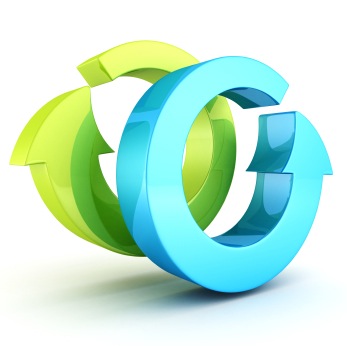You are viewing our site as an Agent, Switch Your View:
Agent | Broker Reset Filters to Default Back to ListClosing the Circle with Electronic Signatures
January 27 2014
 To borrow from The Lion King, even real estate documents have a "circle of life." They begin as forms and end up as documents. Closing that circle has gotten infinitely easier with the advent of electronic signatures.
To borrow from The Lion King, even real estate documents have a "circle of life." They begin as forms and end up as documents. Closing that circle has gotten infinitely easier with the advent of electronic signatures.
You're probably nodding your head, agreeing that this is a no-brainer. But, the truth is that digital signatures have been legal for many years (protected by federal statute) and yet adoption was growing at a snail's pace until only recently. What caused this shift? Consumers are the driving force behind the growth of electronic signatures.
"The downturn in the real estate market led to the growth of investors making deals in other states. Those out-of-state buyers loved the convenience of electronic signatures," explains Marilyn Wilson, co-founder of the WAV Group. "International investors also became much more active during the real estate crash. They, too, were the perfect user group for electronic signatures." Wilson also points to eCommerce as a driver of electronic signature adoption. "Consumers are used to entirely digital transactions and feel comfortable when their real estate transactions are digital as well," she says.
Wilson and other thought leaders discussed a range of issues associated with electronic signatures in their webinar, "Not All Electronic Signatures Are Created Equal." You can view their full discussion here:
In addition to the obvious benefits to consumers (convenience and speed) and to agents (less paper, faster closings, etc.), there's also an often-unmentioned benefit: privacy.
Let's walk through a hypothetical. Say an offer for your buyer client is signed using antiquated pen-to-paper methods and is then sent via fax to the seller's agent's office. If they're part of a large brokerage, it's possible that another agent in their office could have a buyer client making a competing offer on that property. If that competing agent sees your signed offer come through the office fax, they can use it to make a winning offer for their own buyer. This is just one of the examples of the ways traditional signatures may leave you open to privacy breaches.
Forms and eSignatures: A Match Made in Heaven
Electronic signatures are powerful technology. So are forms solutions. But when you combine the two, the process becomes infinitely more fulfilling. Smart technology vendors have recognized this and have married the two. For example, forms provider zipLogix offers their own signature solution, zipLogix Digital Ink®.
It's time to stop resisting electronic signatures. Whether it's part of another technology product or used independently, it's better for you and better for your clients.









